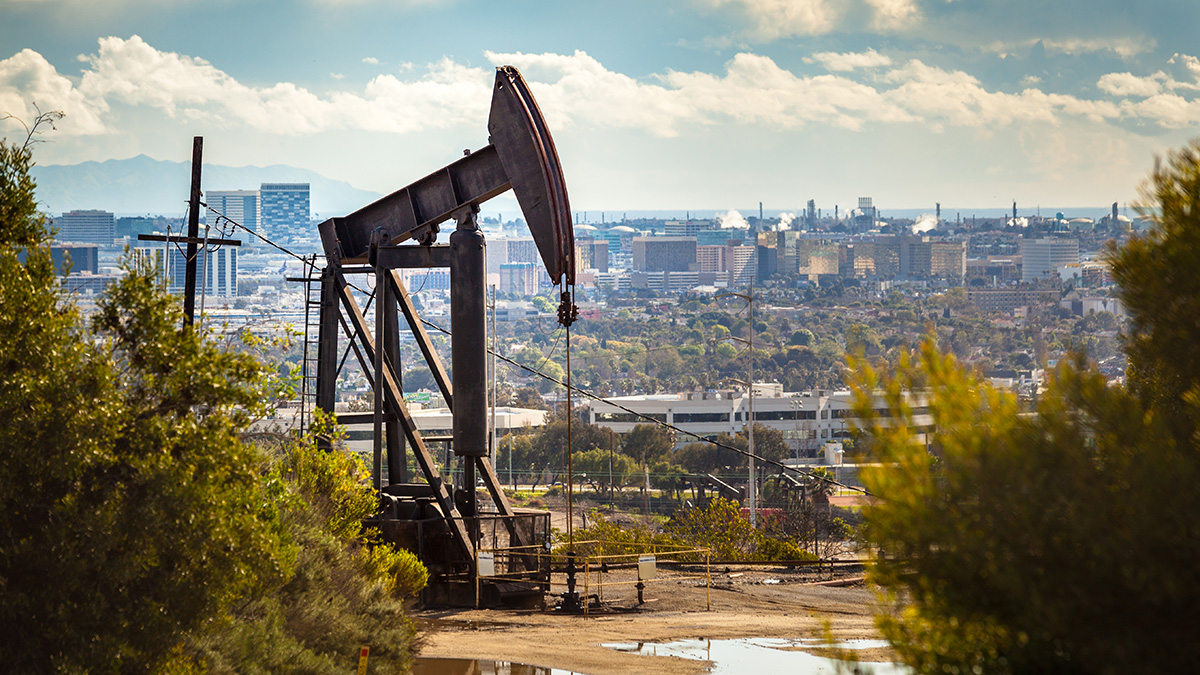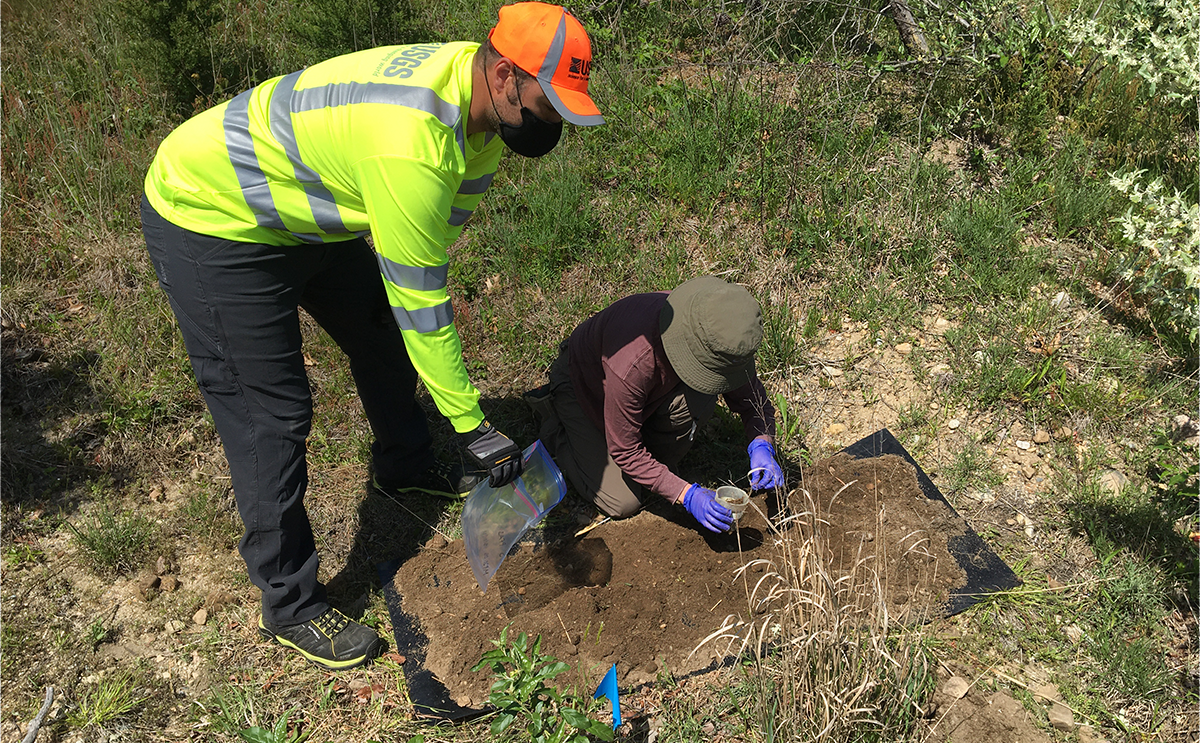National Science Foundation-funded teacher and community workshops boost disaster preparedness optimism among coastal Alaskan educators, whose communities face an array of natural hazards.
geohealth
Mapping Street-Level Pollution Estimates to Reveal Safer Routes
A new high-resolution approach combining multiple types of remotely sensed pollution data allowed researchers to develop an app that maps the healthiest routes for urban commuters.
The “Black Gold” Flowing Under Los Angeles
Functioning oil fields, some with cleverly camouflaged infrastructure, are tucked into the urban sprawl of the Los Angeles basin. But recent legislation could change that.
Indian Cities Invest in Low-Cost Air Quality Sensors
The sensors help bridge gaps in air quality data due to critical shortages of government monitoring stations.
Widespread “Forever Chemicals” in Subsurface Environments
Massive use of materials containing per- and polyfluoroalkyl substances in commercial and industrial sectors has led to their widespread occurrence in subsurface environments.
Can Decommissioned Mines Become Green Power Generators?
A new report supports the idea that underground mines can be transformed into energy storage facilities, adding the possibility of on-demand, carbon-free power to energy grids.
Major Investment in Air-Conditioning Needed to Address Future Heat Waves
More than 80% of urban residents will need AC by the 2050s, but many of the world’s poorer countries may struggle to meet that demand.
Harmful Algal Blooms: No Good, Just the Bad and the Ugly
Natural and human factors are leading to larger, more frequent, and longer-lasting algae blooms. Recent research is increasingly revealing the scope of the problem and informing potential responses.
New Landslide Reporting Tool Uses Social Media and AI
The tool extracts landslide information in real time, which could advance landslide research as well as disaster response.
Irrigation in Indo-Gangetic Plain Has Little Impact on Heat Stress
Irrigation-related cooling during summer months is overestimated by roughly 5 times, highlighting the need for climate models to accurately reflect local agricultural practices.










